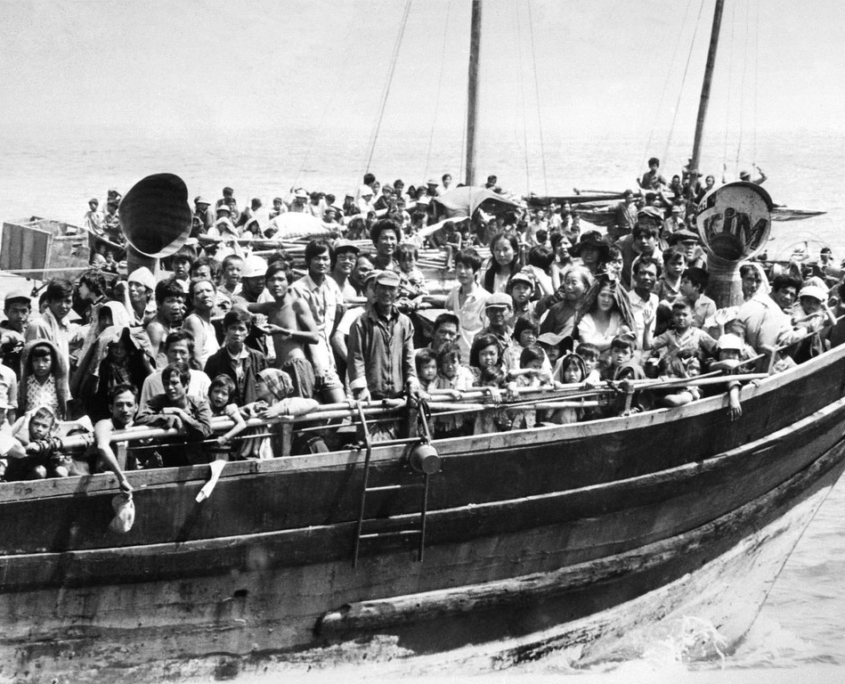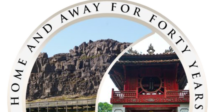Home and away for forty years
This research project is grounded in theories related to muliticulturalis, interview and survey data to investigate the social, cultural, and educational experiences of three generations of Vietnamese refugees in Iceland.

From Conflict to Hospitality:The Journey of Vietnamese Refugeess to Iceland.
After the war in Vietnam ended in 1975, refugees were resettled in many Western countries. In 1979, at the behest of the Icelandic government, the Icelandic Red Cross resettled 34 Vietnamese refugees in Reykjavik (Hardardottir et al., 2005). This was the largest group of political refugees to immigrate to Iceland in the post-war era. Since the Vietnamese resettlement in Iceland, there have been many changes in Icelandic society. In the global context, particularly since the beginning of the 21st century, societies in different parts of the world, including Iceland, have increasingly become culturally and linguistically diverse as a result of global migration trends driven by the global economic system (Parekh, 2006;).
In the current global environment, the availability of rapid and inexpensive communications, media, and affordable transportation allow people to migrate but at the same time, remain closely connected to their language and culture. This ease of border crossing has brought cultures into closer proximity and allowed them to cross-fertilize over time and play a role in shaping refugees and their descendants’ identities through time and generations. Their descendants’ identities are seen as being more pluralistic, diffuse and fluid (Brettel & Hollifield, 2015; Portes, 1992). As part of the global community, Iceland is no exception: its population is increasingly diverse, and its society has become more multicultural (Ragnarsdottir, 2007, Tran & Ragnarsdottir, 2018). The laws of the country were therefore shaped towards inclusivity.
Fostering Cultural Acceptance and Mutual Respect: The Impact of Government Policies on Immigrant Integration in Icelandic Schools”.
The Icelandic Constitution .Art 65 guarantees equality and human rights for everyone. Government policies on the integration of immigrants including school acts and national curriculum guides were enacted throughout the years to promote more social and educational equity for a culturally and linguistically diverse population. Integration is about people of the dominant and non-dominant groups living together in one society, accepting and having mutual respect for the rights of each other as culturally different people .
The Preschool Act was first legislated in 1994 and was amended in 2008. The 1974 Compulsory School Acts were reformed three times in 1989, 1994, and 2008 and the 1988 Upper School Act was reformed in 1996 and 2008. The enactments of the Acts in all three school levels resulted in the developing of new curricula
Evolving Immigration Laws and Policies: Shaping the Lives of Vietnamese Refugees and Their Descendants in Iceland.
Immigration laws and regulations have also gone through several changes. They include the Foreign national Rights to work in 2002, and Government Policy on the intergration of immigrants in 2007 the Regulation on Icelandic Language test in 2008,the Foreign National Act 2016, and the Regulation on Foreigners 2017.
These reforms in laws and policies are only a part of the many changes that have occurred in the lives of Vietnamese refugees. Many more of their countrymen now reside in Iceland than when the first group came. In 2022, Statistics Iceland recorded 1073 people born in Vietnam called Iceland home (Statistics Iceland, 2022). On the other hand, this number did not account for their descendants, who were born in Iceland that can make up to another 30 to 40%. –
In Reykjavik, residents now can enjoy Vietnamese food at several Vietnamese restaurants, and shop for their familiar ingredients at locally owned Vietnamese supermarkets. Yet, while the Vietnamese have become more established in the past 40 years, apart from some media articles written about members of the group, there has not been research that critically studies their and their descendants’ integration process.
Breaking New Ground: The Pioneering Study on Young Vietnamese Immigrants in Iceland by Anh-Dao Katrín.
The two research exclusively about Vietnamese immigrant youth who arrived in the early 21st Century were conducted by Tran were published together with Ragnarsdóttir Katrín in 2013 and 2018 .While educational studies in different parts of the world have found that Vietnamese descendants are doing considerably well in upper secondary school, and the expectation for them to attend university is common (Nguyen, 2012; Nieto and Bode, 2012; Lee & Zhou, 2013), Tran’s studies found that the youth were more prone to dropping out from Icelandic upper secondary schools because the school systems perceived them as being deficient in Icelandic language and culture.
